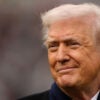Iranian Foreign Minister Ali Akbar Salehi visited Turkey over the weekend and met with Turkish foreign minister Ahmet Davuto?lu. On a very broad agenda—which included a formal retraction from Davuto?lu stating that he did, in fact, take seriously U.S. claims that Iran was involved in a plot to kill Saudi Arabia’s ambassador to Washington—was the issue of missile defense.
As a NATO member and U.S. ally, Turkey has agreed to host an early warning radar as part of a joint U.S.–NATO missile defense system. However, Iran has repeatedly criticized Turkey’s decision to participate in the shield, arguing that it is intended to protect Israel. In a characteristically anti-Semitic tirade, Iranian President Mahmoud Ahmadinejad stated, “Such shields can’t prevent the collapse of the Zionist regime.”
Iran has also been the biggest foreign supporter of Syrian President Bashar al-Assad’s government, which, like Tehran, has violently cracked down on pro-democracy protesters. Turkey has recently begun cutting ties with the Syrian regime and has joined international condemnation of the brutal repression exercised by the Assad government.
It is difficult to see how Ankara can be critical of Assad’s regime but not of Ahmadinejad’s. It is equally difficult to see how Davuto?lu can stomach Iranian criticism of Ankara’s participation in NATO’s missile defense shield, since Iran’s nuclear program clearly poses a strategic threat to Europe and the Middle East. The reality is that despite a trading relationship, there is actually very little that unites Turkey and Iran.
In June 2010, Turkey defied its traditional allies, including the U.S. and Israel, by voting against a fourth round of U.N. sanctions against Iran in punishment for Tehran’s illicit pursuit of nuclear weapons. This show of support has not translated into greater diplomatic leverage with Tehran but has merely invited greater criticism and pushback from them.
It is time for Ankara to engage in some pushback of its own and to tell Tehran that Ankara remains, first and foremost, a member of the transatlantic alliance.




























